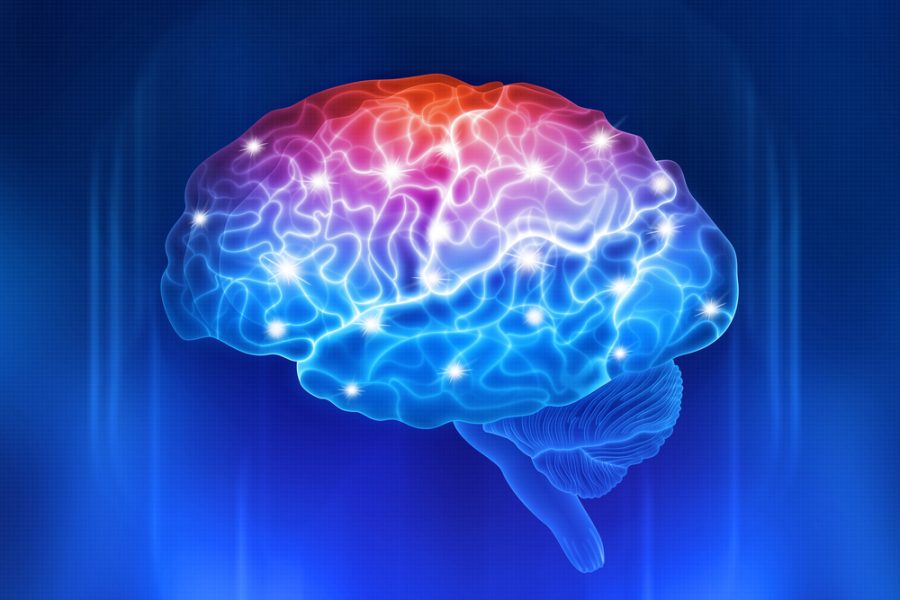
For people who suffer from alcohol abuse and alcoholism, there are many risk factors that can cause long-term and even fatal health problems. One of these serious health conditions is known as “wet brain.”
Learn more about this disorder, the symptoms, and the signs of chronic alcohol abuse that can put your life in danger.
Table of Contents
Wet Brain and Chronic Alcohol Abuse

The term “wet brain” describes the type of bodily harm that often develops in people who suffer from alcohol abuse and alcoholism.
When you abuse alcohol for a prolonged period of time, your body begins to experience side-effects. One of these harmful side-effects is that your body might stop producing or absorbing a very important vitamin called thiamine (otherwise known as vitamin B1).
Many people who struggle with alcohol addiction find it challenging to take care of themselves. This often leads to poor diets and chronic alcohol abuse, which can cause you to have a lack of thiamine in your body.
Having a thiamine deficiency can greatly impact your ability to function, fend of illnesses, and can even keep parts of the brain in a state where it is unable to form new memories. Unfortunately, wet brain is irreversible, though it can be treated in its earliest stages of development.
A Lack of Thiamine Causes Wernicke-Korsakoff Syndrome (WKS)
Wet brain is a condition medically known as Wernicke-Korsakoff syndrome (WKS). WKS is named after two separate disorders: Wernicke encephalopathy, which is the first stage toward developing WKS, and Korsakoff syndrome. Both impact your body in different ways, but often go hand-in-hand in cases of chronic alcohol abuse and an alcohol use disorder.
Wernicke’s Encephalopathy
Wernicke’s encephalopathy develops from the thiamine deficiency, which occurs most often in people who abuse alcohol. This is because thiamine, or vitamin B1, breaks down carbohydrates to use as energy. The energy is then produced and absorbed by your body’s most essential parts, like the heart, muscles, and nervous system.
Once your body has a lack of thiamine, your entire central nervous system begins to deteriorate because it does not have the vitamins and nutrients it needs to stay healthy and functioning on a normal level. As you can imagine, the lack of thiamine leads to difficulty maintaining healthy heart, muscle, and nerve functionality.
Wernicke’s encephalopathy comes with symptoms of:
- Altered mental state
- Side-to-side or up-and-down eye movements
- Undereye drooping
- Weakness in muscles
- Sudden mobility issues
Korsakoff Syndrome and Korsakoff’s Psychosis
Korsakoff syndrome, on the other hand, most greatly impacts parts of the brain that control cognitive functioning. This means that you might not be able to form new memories or remember new information.
Those with Korsakoff syndrome often have difficulty communicating—sometimes forgetting the meaning of words as well as conversations they just had. This is because the parts of the brain that store short-term memories are damaged from the lack of thiamine.
This syndrome is also known as Korsakoff’s psychosis because of the aggressive way it attacks memory more than other parts of the brain that affect different cognitive abilities.
Research shows that patients who experience Wernicke’s encephalopathy often develop Korsakoff syndrome or psychosis in the late stages of the disease, when the brain damage has become permanent.
These conditions most often come from alcohol abuse but can sometimes occur in patients who do not misuse alcohol and instead have underlying medical conditions. Additionally, it’s possible for you to have Wernicke’s encephalopathy without having Korsakoff syndrome, and it is possible to experience Korsakoff without symptoms of Wernicke’s encephalopathy.
However, people often develop Korsakoff syndrome after having a Wernicke’s encephalopathy episode. This is why the conditions are linked together by name to describe wet brain as Wernicke-Korsakoff syndrome.
Can You Treat Wet Brain?
If doctors catch the condition early, you can most likely successfully treat Wernicke’s encephalopathy. The best method of treatment is going right to the source of the problem, which is the lack of thiamine. IV injections of missing vitamins, thiamine replacement therapy, and changes in diet are often the first steps toward treating the symptoms of wet brain.
Your health care professional might recommend immediate care if they suspect or diagnosis Wernicke’s encephalopathy because if it goes untreated, it can lead to more severe brain damage and the chance for you to develop Korsakoff syndrome, which is, unfortunately, untreatable.
Since Korsakoff syndrome usually develops after an episode of Wernicke’s encephalopathy, the damage to key parts of the brain has already spread. This damage is frequently too severe to be reversed. However, your doctor and health care team might still try different methods of IV and vitamin replacement therapies to slow the progress of the damage.
The most important thing to note when it comes to wet brain or WKS is that treating alcohol abuse and alcoholism is the only way to prevent and treat these conditions.
Treatment for Alcohol Use Disorder

The first step toward recovering from chronic alcohol abuse is recognizing the signs. The National Institute on Alcohol Abuse and Alcoholism (NIAAA) lists a number of symptoms to watch out for if you feel you or a loved one might be one of the 15 million people affected by alcohol use disorder:
- You drink more alcohol than originally intended when going out
- You experience withdrawal symptoms when you aren’t consuming alcohol
- You frequently crave alcohol and find it hard or impossible to go without it
- You prioritize drinking over other important factors in your life, like work or school
- You find that you need to consume more and more alcohol to feel its effects
- You use alcohol to cope with painful emotions or mental health issues.
If any of these signs hit home for you or a loved one, consider joining an alcohol abuse recovery program to get back on track with your health and happiness. Remember that addiction is a fight, but it’s one that you can win.
Help Is Here
If you worry that you might be struggling with an alcohol use disorder and find that it is impacting your health, happiness, and every-day life, find a recovery program today so that you can prevent dangerous conditions like wet brain or Wernicke-Korsakoff syndrome.
The Blackberry Center is located near Orlando, Florida and specializes in helping you fight your addictions and mental health concerns. We believe that treatment should address every aspect of your health, including emotional, mental, and physical. Our programs are specially made to get you on the right path toward recovery—we want to see you continue to live a long, healthy life. Reach out to us to learn more about your recovery options. You can reach our admissions department by phone at 407-449-7810 or by filling out our confidential online form with your questions and your story of addiction today.
The post What Is “Wet Brain” in Alcohol Abuse and Alcoholism? appeared first on The Blackberry Recovery Center of Central Florida.
Source
Original Author: The Blackberry Center

